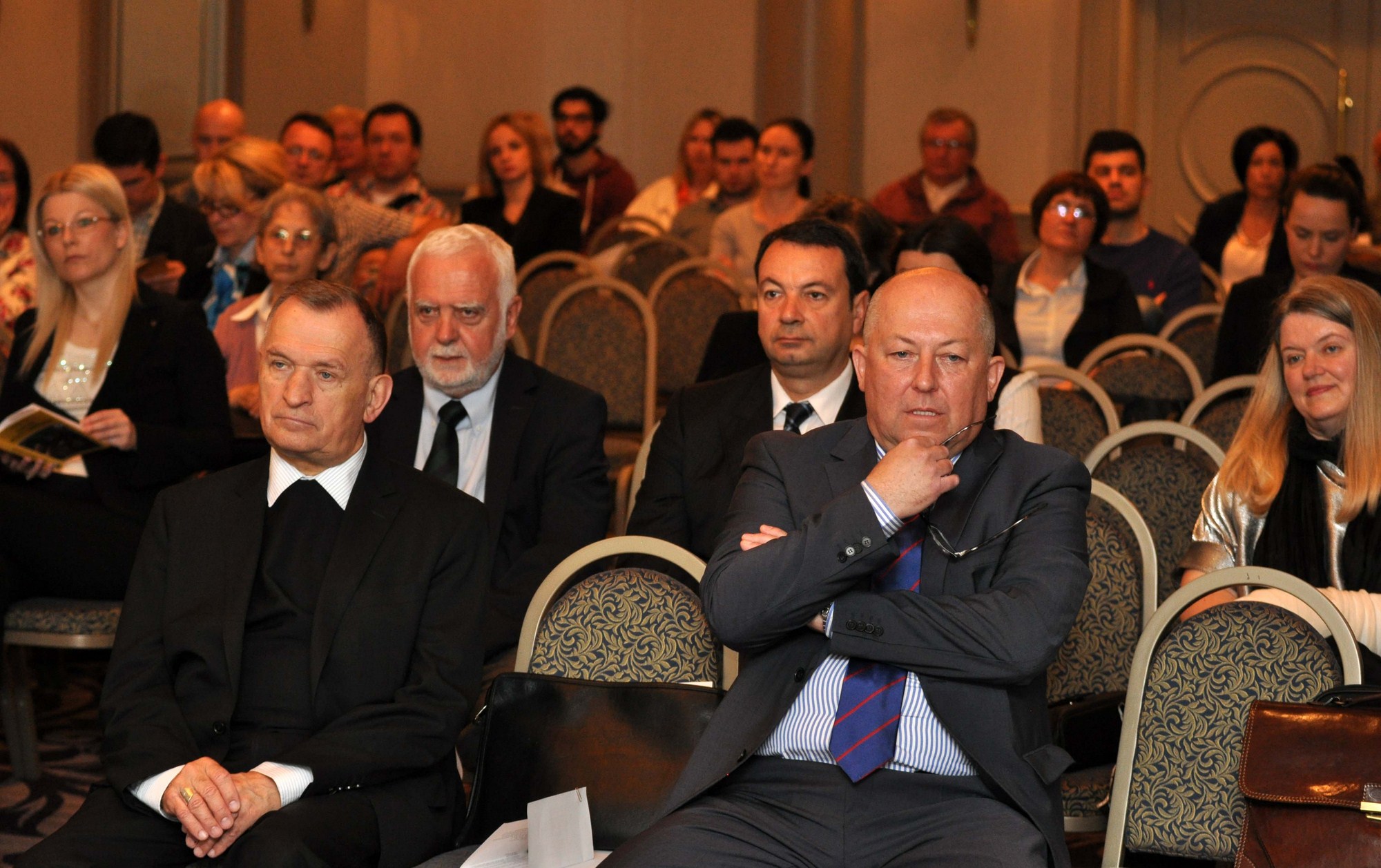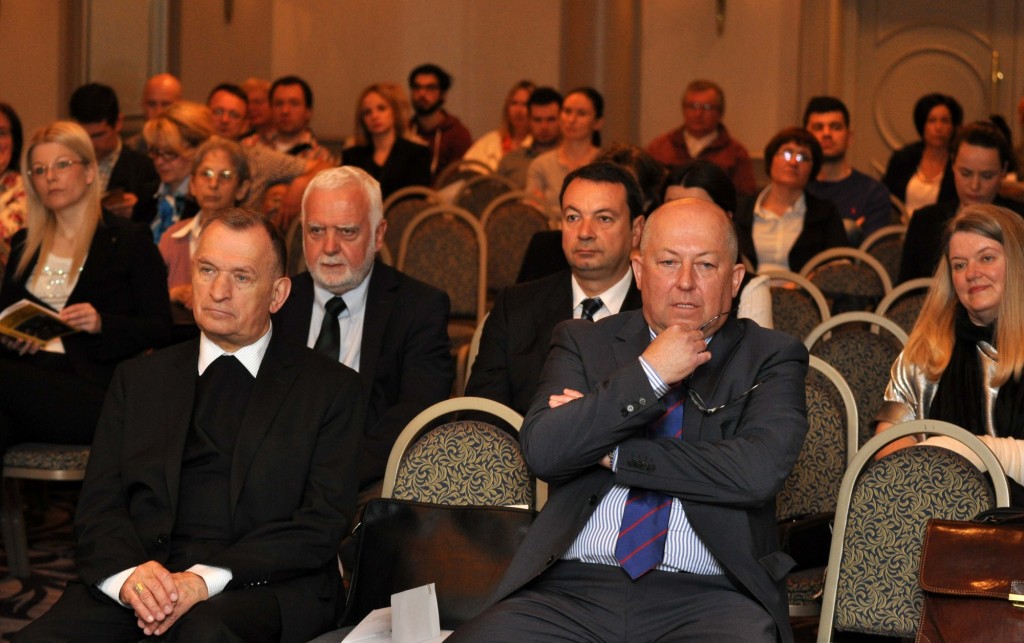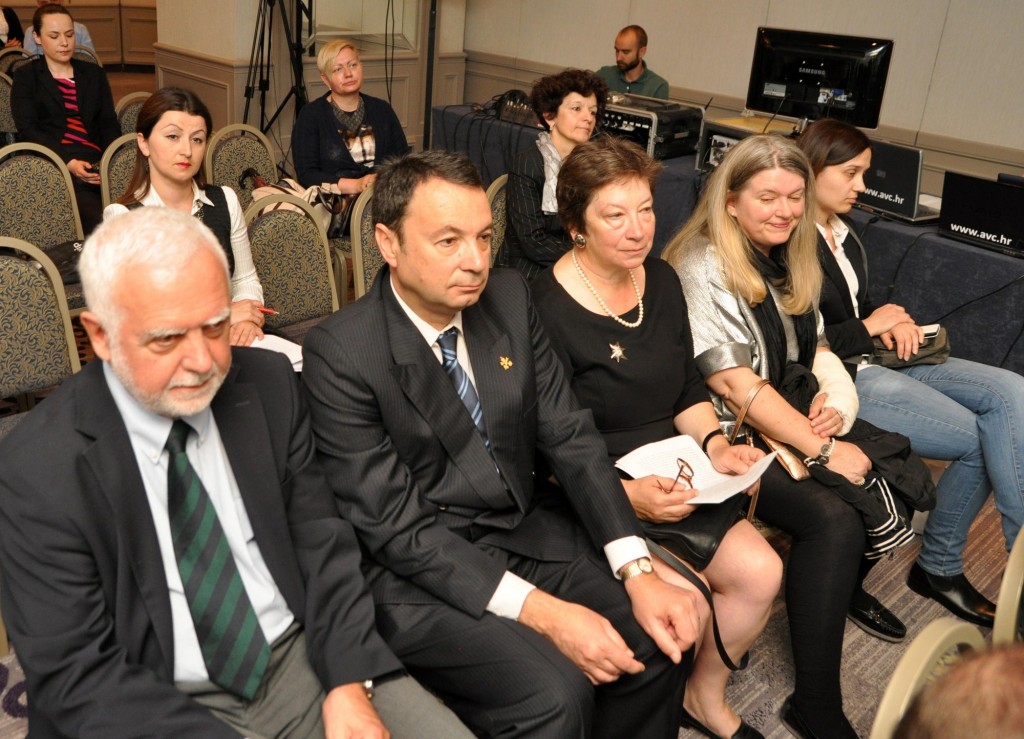MORALS AND DOGMA
Zagreb, May 15, 2015
By Dr. José María Simón, Former President of the World Federation of the Catholic Medical Associations (FIAMC)
1.- INTRODUCTION
Being the President of the FIAMC, on December 1, 2006, I wrote an open letter to Catholic Physicians worldwide on the doctor´s relationship with morality. It was written in seven languages. The letter was well received by doctors and many media republished it and diffused it all over the world. There was nothing really new on it but I assume that doctors needed that kind of stuff from a colleague. The Ecclesiastical assistant of the Federation helped me with the last corrections. This speech in a Congress of dentists is a about the content of that letter.
Relations between physicians and moral have not always been easy. One of the requirements for practising good medicine is moral security. Human and Catholic moral security. In order to be good doctors, we must be well trained and correctly informed in our permanent search for the truth.
2.- THE NATURAL LAW EXISTS
The natural law is the ability of straightforward human reason to know and to stick to the truth. There is no other profession that appreciates the existence of this law as much as physicians.
Although the natural law does not coincide with biological law, we are perfectly aware that if we underestimate human physiology, for example, our patients will be sick. No one can, for example, eat stones without transgressing the laws of our body and, therefore, falling ill and breaking teeth…. This can help us to understand that there is also a law which helps us to value human dignity.
Our ultimate personal authority is our personal professional conscience, which will trigger the decisions on medical acts. But there is a safe, genuine and objective, and therefore useful and good authority for a general interpretation of this law.
God is the Creator of the universe and of man. And, as some political constitutions say, God made man free. Free to choose the truth and good. But also free to choose evil. Moreover, experience tells us that we also commit mistakes without really wanting them.
3.- THE CHURCH INTERPRETS THE NATURAL LAW
Our Creator stipulated that it is the Church that should interpret the “natural law” in an authentic manner. The Teachings of the Catholic Church can help us on not leaving us alone. The Church speaks with human language about everything that happens to man.
Another truth that our own and historical experience perceives is the reality of the progress of Medicine. As human beings we have numerous surprises to discover in nature itself and we are capable of inventing and of building no end of things, which makes living a passionate and never complete experience.
4.- THE TEACHINGS OF THE CHURCH ACCOMPANY THE PROGRESS OF MEDICINE
As I often say, Moral security is necessary in order to practise our profession. In the same sense, juridical security is also necessary to avoid a number of personal and social problems, including putting in front of the human justice. The Teachings of the Church enlighten the professional conscience in order to practise with good, adapting to the times and moments of progress. The Teachings intervene after considering the data obtained by the experimental sciences. They do not save us from the effort of studying the world by ourselves. On the contrary, they impel us to do this de facto and de iure.
Any ordinary person understands the saying “what the boss says goes”. This should be enough to silence anyone who attacks papal teachings.
One of the principles of communication in the Catholic Church is that of clarity and non-contradiction. There are no secrets in the Church. The major truths are public and can be found in the Catechism of the Catholic Church. When a mystery is proclaimed, it is clear and it is classified as such.
The life of people on this Earth is aimed at their eternal destiny. Man cannot be measured in just two dimensions. The third dimension, the one that points upwards, is the one that gives our lives volume.
5.- WHEN MAKING DECISIONS THE PROBLEM SHOULD BE FRAMED
On many occasions as Catholic physicians we come across moral dilemmas and have to make difficult decisions. It is therefore important to know how to distinguish between good and evil.
When making decisions, it would be good to take into account the ancient principle of Medicine: “primum non nocere” (first, do no harm) and the evangelical principle “no more burdens than necessary”. Also, that of always working with an overabundance of good.
Although we are not usually responsible for the evil that third parties do or for finding ourselves working within sinful structures, we should never lose the strength of the ideals of youth, the freshness of wanting to change things, however deeply rooted they appear to be, or the conviction that we are never alone.
Before making decisions, the physician takes stock of the situation on facing a specific problem. This is of the utmost importance! It is good to fit things into the big picture (the frame).
6.- CAN YOU DO HARM TO DO GOOD?
No. Never.
Although in general the problems in medical decisions do not tend to be presented as harm which does good, the truth is that this is the key to the issue on many occasions. And the principle of never doing harm to do good (the end does not justify all the means) is essential.
Medical decisions are moral acts. Life’s routine often means that we do not see them as such. Maybe one day we considered the morality of a procedure or protocol, we decided that it was fair, and we applied it to our different patients without thinking any more about it. Automatisms form part of nature and help us to live without wasting huge quantities of mental energy. However, on some occasions – not just in extraordinary cases – the moral act should be studied with care.
The traditional dissection of the moral act into object, aims and circumstances is very useful.
A good act requires the simultaneous goodness of these three elements which constitute the morality of human acts: object, aims and circumstances. In short, what we are really talking about.
For example, can you get drunk (an evil act) in order to have decayed teeth removed (a laudable aim) in the absence of medicines? Is this not accepting that the end justifies the means or that harm can be done (getting drunk) in order to achieve health? The answer to this apparent dilemma, which can be applied to many other cases but not to all, is that we have classified the act as “getting drunk” whereas really it is an “anaesthetic” act. Alcohol is an anaesthetic, although of a secondary category. Our practical reason, with a little training, will help us to classify the moral act correctly.
There are behaviours whose choice, because of their nature, is always wrong. For example, in the case of abortion, it cannot be stated that sacrificing the child to supposedly favour the mother is a good act. However you look at it.
7.- THE DOUBLE EFFECT
The double effect theory has a bad reputation in Europe due to the discredit of the so-called “collateral damage” in recent wars. You bomb the enemy and, unintentionally, your action injures innocent civilians. This is terrible.
However, Medicine holds firm because we accept the theory. Chemotherapy is intended to eliminate cancerous cells while also damaging healthy cells. We remove a sick uterus despite the fact that the woman will be infertile for ever. We vaccinate thousands of children despite the fact that some will die from the side effects.
Obviously we must do everything possible to minimize side effects, just as we should do everything possible to prevent all kinds of war. With the double effect, it is not a question of doing bad to achieve good. The bad is not wanted. It appears like an unwelcome and persistent guest.
With so-called therapeutic or eugenic abortion, to make it clear that here there is no double effect and that what is being fought first here is the embryo, Saint John Paul II himself stated that the death of an innocent can never be legitimised.
8.- THE LESSER EVIL
It has become fashionable to talk about the lesser evil as if it were something desirable. But, no. You can never do bad, however little it may be or you may consider it to be. Bad is always bad. We have to tolerate certain evils because we are not heroes who must fight against everything and moreover the human being is free even to use this freedom badly. Our obligation is never to do bad. Always to do the most good possible. What we should not get used to is to tolerating the bad inflicted on innocents. These are never lesser evils!
9.- COLLABORATION WITH EVIL
With the current state of the world, we often have to consider whether to avoid collaborating with those people and structures which go against the dignity of the human being. Although they may find others who will collaborate with evil, they will not find us. It should not be attributable to us, and, if possible, we should try to lead these situations down the correct paths.
On some occasions we have doubts, especially if the collaboration is remote. Remote collaboration, although effective, is not attributable to us if we do not want it to be. It is good to avoid scandal and not to become contaminated by it. But we cannot isolate ourselves in a glass bubble and stop being the salt of the Earth.
10.- FREEDOM AND MORAL SECURITY
The Catholic physician or dentist has broad freedom to practise the profession. We have intelligence and we need to make it perform to the maximum. Moreover, the security that we are acting correctly (moral security) can be achieved with training, accepting the Teachings and consulting certain cases with senior colleagues or with a priest who knows the correct doctrine. Thousands of professionals worldwide practise daily with the peace of mind that they are acting correctly. Of course, we are sinners and sometimes we have to regret about our actions…
I do not want to forgive to tell something about the freedom of the sons of God. Freedom exists and we can use it freely… We have only to take into account the following Latin phrase: In necessariis unitas, in dubiis libertas, in omnibus caritas, commonly translated as “unity in necessary things; liberty in doubtful things; charity in all things”
As Catholic physicians we have great models on which to base our actions. They have simply identified themselves perfectly with the principle of ethics: Christus medicus.
St. Luke, St. Cosme, St. Damian, St. Joseph Moscati, St. Gianna Beretta and many more, have preceded us and have become the giants of Medicine. Curiously, patients often venerate them more than us, the physicians…
Small summary:
Always do good, always avoid evil, never do harm to produce good, always try to repair the side effects of our works.
http://www.fiamc.org/uncategorized/conference-in-zagreb-croatia/











